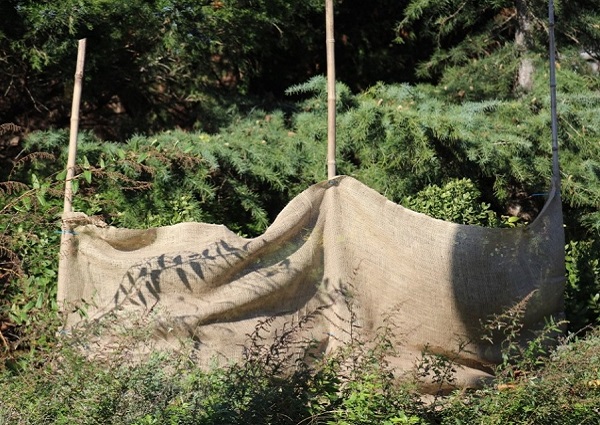
As any seasoned gardener can confirm, winter is when a green-thumb’s mettle is truly put to the test. In fact, due to the abundance of ice, frost and cool temperatures, many hobbyists simply abandon gardening altogether during the winter months. While keeping your garden in good health throughout the winter may be challenging, it’s by no means impossible. Armed with a little bit of knowledge and a healthy amount of follow-through, you can ensure that your home garden remains intact all winter long.
Keep Your Plants Warm
For most living things, staying warm is an essential step in surviving the winter, and plants are no exception. With this in mind, you’ll need to take measures to minimize your garden’s exposure to cold winds and snow. Since your plants will remain outdoors, it’s impossible to completely shield them from the cold, but keeping them covered will give them a fighting chance. This can be done by hammering some stakes into the area surrounding your plants and wrapping a burlap barrier around them. If you don’t have any burlap on hand, you can find a variety of cloths designed for this specific purpose at virtually any garden center.
Keep Temperatures Consistent
Repeatedly freezing and thawing can take a serious toll on many plants. Additionally, most plants are unsalvageable after they’ve incurred frost damage. To ensure that your plants aren’t at the mercy of constantly fluctuating temperatures, you’ll need to provide them with some consistency. You can do this by spreading three inches of mulch around the surrounding area. This will help keep the temperature consistent and protect your plants from freezing. Furthermore, to prevent the mulch from blowing away, take care to cover it with netting or chicken wire. If you live in an area that’s prone to strong winds, this step is particularly important.
Water Your Plants Before the Big Freeze
For many years, it was believed that watering outdoor plants in cold weather was bad for them. Since water is synonymous with moisture and moisture is synonymous with frost, this belief was perfectly understandable. These days, however, many gardeners know that water helps heat generate in soil, so starving your plants once the weather starts to cool is a zero-sum game. Right before the ground freezes in the fall, make sure to give your plants a thorough watering. This will enable the plants and soil to store an abundance of heat before the first big frost.
Bring Certain Plants Indoors
Despite gardeners’ best efforts, some plants simply cannot survive outdoors during the winter. To determine which, if any, of your garden’s plants fit this description, speak to an expert at your local garden center or research your respective plant types online. If you discover that your garden is home to plants that are incapable of surviving the winter, your best bet will be to bring those plants inside and provide them with the recommended amount of water and sunlight. Once spring makes its reappearance, you’ll be able to return them to the garden and reintegrate them into your outdoor lineup.
Enlist the Aid of a Yard Maintenance Service
If you don’t have the time or inclination to tend to your garden throughout the winter, consider enlisting the aid of a dependable yard maintenance service. Although these businesses traditionally specialize in lawn maintenance, many of them also provide convenient gardening services that can save you the trouble of fretting over your plants during the winter months. Far too many homeowners allow their yards to fall into disarray over the winter, but with the aid of the right maintenance service, you won’t have to count yourself among them.
Winter is the season many gardening enthusiasts dread. Keeping outdoor plants alive throughout the winter months is considerably more difficult than tending to them during seasons with more agreeable weather. As such, it’s hardly surprising that so many gardeners elect to cut their losses and take the winter off. Although wintertime gardening presents a number of challenges, it’s far from a lost cause. Provided the proper steps are taken, many gardens can survive the frigid winter months. Green-thumbs who are tired of allowing their gardens to become casualties of cold weather are sure to benefit from the tips discussed above.


